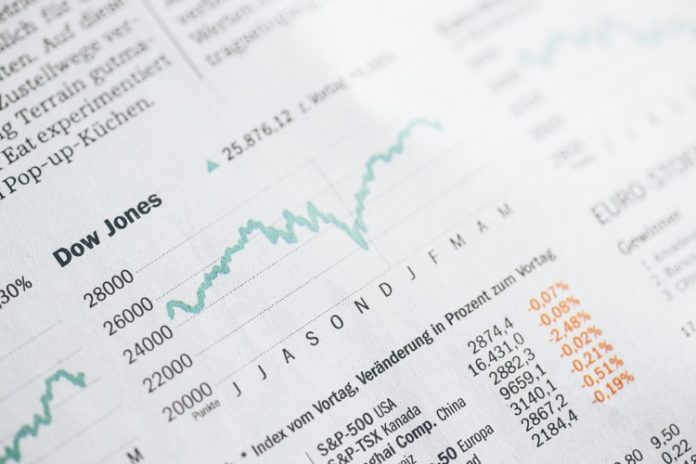This article is written by Meera Patel from Maharaja Sayajirao University, School of Law, Vadodara. This article explains the meaning, causing factor, and legality of the parallel economy.
Table of Contents
Introduction
The parallel economy also expressed as the menace to our economy has been deeply rooted in our economic systems. The unaccounted money that is being hidden from the tax administrators is known as the black money.
In India, the black economy has established its roots so deep that it might be a waste of time even if someone would like to bring about a change. Although various attempts to do the same such as the demonetization of 2016, voluntary disclosure schemes, etc have been made yet we still have a long path ahead of us if we want to eradicate the situation.
What is the parallel economy
The functioning of any unaccounted or unsanctioned economic sector whose basic idea finances the operation of the said sector refutes the legal objectives set by the sanctioned/ registered/ legitimate sector is known as a parallel economy. In simpler terms, the parallel economy inculcates all the forms of activities via which black income is generated especially those which are usually not accounted for. Commonly referred to as black money or black economy, the parallel economy negatively impacts the economic system of a country. Being part of a democracy, a common man will expect the policymaker to be just, but because of the unaccounted economy, the result of the GDP will not be useful to policymakers to make policies that cater to everyone.
While the GDP of India was 1.68 crores back in 2010-2011, studies have shown that 71% – 79% of the GDP was India’s black income.
History of the parallel economy in India
One might think that India is still considered as a developing country because the parallel economy has been weighing India’s economic system down and it is true to an extent but the black economy has rooted itself in not just the underdeveloped countries but also in the most developed countries too.
The history of the parallel economy goes back to the days of World War II when scarcity of necessary supplies as the supply of the goods that came from the west had stopped thus, forcing the common man to make money out of shortage. Later on, when India achieved her independence from the British rules, the freshly independent Indian political leaders wanted to establish a powerful government system but a weak democracy was established due to their inexperience and lack of resources because the powers were in the hands of unaccountable leaders who were answerable to the elite class of the society. As the political leaders started to corrupt the system, in its juxtaposition, a few of those leaders started to keep the black economy in check for more resource development.
Along with time, people learned the process of manipulation of trade and economic policies which was linked to the political system of the country. As the parallel economy started to spread its branches in all the sectors of our economy, the people started to practice their control over the political sector by funding the political parties so they could monopolize the whole economic system. Thus, that was the start of the game of thrones where black money was the end price. Politicians and businessmen worked side by side to secure a common target and induced corruption ever since.
Reasons behind the growth of the black money in India
Licensing system
The licensing system was formulated even before India was an independent state. The aftermath of World War II and the immediate departure of the British system led to the creation of the licensing system. The planning commission of the newly independent India concluded that the licensing system was necessary as the British East India Company had exhausted nearly all the resources of India. The free market was allowed but the private sectors were allowed to produce goods only with a certified license. To regenerate the already exhausted resources, the Indian government placed high tariffs on the import and exports, highly promoted the domestic products, high ended custom duties, the imposition of excise duties on different products, etc.
Higher Rates of taxes
Taxes were increased because the government wanted to promote and grow its economy without outside help. For example; the export and import taxes were increased so that there would be less international trade and more domestic trade. The rapidly growing tax evasion practices increased due to the increment of the taxes. Tax evasion is certainly common in sales tax, corporate tax, income tax, etc.
Ineffective enforcement of tax laws
Lack of enforcement of the tax laws formulated in India under the Income Tax Act, 1961 is very weak resulting in the deeply rooted parallel economy we are facing today.
Funding of political parties
When the two sectors are intersected at a point, it is obvious that people will tend to fund the political parties/ ruling government to get the illegal work, to slide by through the loopholes they pay for or to manipulate the ruling party to change policies according to their liking because as long as there is corruption, the parallel economy will never be eradicated.
Agricultural Economy
Agriculture is one of the biggest economic sectors in India, people have started to buy their way out by entering the agricultural sector and investing in big lands. This is a silhouette that has been put on the illegal sources which people use to acquire black money so that the black money can be transformed into white money in place of the agricultural tax returns.
Privatization
Every coin has two sides and the second side of this revolution is that people use this sector to produce black money. In simpler words, in the name of privatization, people have learned to conceal their wrongdoings.
Other factors
The main factors that give parallel universes a kick start to earn more and more black money can include bribing, smuggling, smuggling of illegal products, unaccounted property deals, and commissions, etc. The humongous amount of black money generated in India is proof that the parallel economic activities have been going on for ages.
Strategy for recovering black money
The government has taken various initiatives to understand the working of the parallel economy. Various government institutions have been appointed to conduct a study on black money to create a strategic plan which can be used to curb the issue. Many steps have been taken or should be taken by the government to curb the rising issue of the parallel economy before it destroys our economic system.
- The parallel economy isn’t bound in a territory. It is a global issue. Transfer mispricing is one of the root problems until now because people practising tax mispricing invest their income in tax haven countries such as the USA, UAE, etc. Joint efforts are needed in times like these where all the countries should come together to curb such global issues so that there is transparency and clear accountability in our economic system.
- The need to create a very strict and appropriate legislative framework is the need of the hour. With such a humongous amount of black money that has been generated in our country for years, the government must change the legislative framework and create stricter and stringent laws that are from a different perspective. One such new idea is that India has already completed negotiations with 22 tax information agreements with some major tax haven countries.
- The government needs to set up new institutions to abolish illicit funds. As mentioned above, tax exchange negotiations have been made, the government has also agreed upon initiating an institution for criminal investigation known as Directorate of Income Tax. Two-Income Tax units have already been installed overseas and eight more are to be installed in the future.
- Apart from the technical development, we need to hire more manpower who can impart skills to get more effective and productive results.
Implications of the parallel economy on the internal security of India
The parallel economy is not only a threat to our economic situation but also a very huge threat to the internal security of our country. The repercussions of the parallel economy have created many serious social and economic problems in our country.
As much as it affects the financial system of a country, neither the centre nor the reserve bank of India would be able to control the financial crisis that it may bring with it which will lead to higher inflation in the country.
Leaving the economic problems aside, the money generated from the black market is very often diverted towards money laundering which is very often invested in illegal activities such as terrorism, illicit drug trafficking, human trafficking, smuggling of illicit banned products/ properties, etc. For example One of the major examples that are known are the drug cartels of Mexico. The parallel economy is pervasive in Mexico due to illegal drug trafficking.
This does not only promote terror financing but also arms smuggling, drug financing, and corruption. Similarly, when black money that is evaded by illegal ways is spent on illegal resources virtues like honesty, hard work, and justice are undermined which is not only lawfully wrong but also morally discouraging to the rest of the citizens.
Government measures against parallel economy
In regards to the Indian economy, the Indian government has taken many initiatives to get a halt to the parallel economic activities going on in our country. Besides keeping an eye one people by the income tax department, the major changes were made in the Finance Act, 2004 to try to curb the issue. The few measures are taken up by the government to ensure smooth functioning of the procedure to eradicate the parallel economic issues are:
Demonetization
On 8th November 2016, the BJP government leader Narendra Modi announced the news of demonetization of the currency. Similarly, many such demonetization processes took place in the past as well (1946) but it did not turn out to be successful. Another such demonetization trial took place in 1978 where the government demonetized the demonization notes.
Voluntary Disclosure of Income Schemes
The voluntary disclosure of income scheme was introduced by our ex-finance minister Mr. P Chidambaram. This was very out of the ordinary but despite that, it turned out to be a very successful experiment. In simpler words, this was an easy way out for the defaulters. The people were given a chance where they could disclose their income to the government voluntarily and they would not be punished. Over 3.5 lakh people disclosed their income and a huge revenue was generated by the Indian Finance Ministry back in 1997 when this scheme was in action.
Special Bearer Bond Scheme
A bearer bond is definite income security that a holder owns who is not the registered owner. The bearer bonds are economic instruments of earning which have a clear maturity date and the interest rates printed on them. The Special Bearer Bond Act 1981 was introduced to the public to target the people who finance the parallel economy. This act stated that the government will provide an immunity blanket to all the holders of the bearer bonds. Including the immunity blanket, certain exemptions were given too from direct taxes for such bonds.
Measures to Check Tax Evasion
As mentioned above, the income tax department does keep an eye on the people to curb the above-mentioned issue. Even though this has been one of the most challenging tasks for the government, people tend to slip by the loopholes and the black economic market seems to rise a little bit every day. Various reports, searches, and surveys show that people tend to hide their income from the government because they do not wish to pay the taxes from their earnings. Tax evasion is one of the basic reasons for the enormous generation of black income.
Other Measures
Various other steps taken up by the government include raids, searches, controlling election expenses (bribing), national development of Bonds in US dollars, etc. Various other acts were introduced by the government that were put to action in the past such as Prevention of Money Laundering Act, 2004, National Housing Bank scheme, Income Tax Act, 1961. etc.
Impact of demonetization on the parallel economy
On 8th November 2016, out of the blue, the government declared demonetization in our country and the 1000 and 500 rupees notes were banned while introducing the new 2000 Rs. and 500 Rs. notes. The main agenda behind introducing demonetization after the demonetization of 1978 was to expand the tax base, digitization of all the records which must be mandatory while linking the property records with PAN ID and the radar numbers, increase tax compliance, and mainly to curb the problems created by the parallel economy.
Several issues have been addressed since the government has taken up such a huge scale project. Demonetization was a step that was taken up to not only control the parallel economy but also its repercussions such as terror financing, arms smuggling, drug financing, corruption, supporting electronic transactions, increasing government revenues, etc. Counterfeit notes that are smuggled in the country via the neighbouring countries are the greatest source of terror financing in India.
Being the second-largest populated country in the world, uprooting corruption using government policies rather than chasing tax defaulters is a more feasible option. Weeding out such culprits in such a hugely populated country through government established agencies only is a never-ending job thus, demonetization was introduced that could help the government to easily cripple the design of terror financing by the enemies.
Conclusion
The parallel economy has always been a threat to our economy and our country. Systems like high tax rates, inflations, privatization, licensing system, funding of political systems, etc have been the major instigating factors of the parallel economy.
In India, the black market has been growing constantly and negatively influencing the economic growth of our country. The parallel economy has been undermining the GDP of India, increasing illegal activities, increasing the disparities between the poor and the rich daily, etc. Three demonetization projects have already taken place in the past and various schemes, offers, etc were introduced too so that the above-mentioned issue could be controlled to a certain extent but looking at the current situation, the only thing a layman can make out from the past is that those schemes and demonetization weren’t as effective. Currently, as a parallel economy is considered a threat in our country, many new ideas are being brainstormed by scholars and politicians. We can only hope that the government will find a way to curb not only the issues with our economic deterioration but also our country’s security as soon as possible.
References
- http://docsdrive.com/pdfs/medwelljournals/ibm/2016/4855-4860.pdf
- https://www.nepjol.info/index.php/EJDI/article/view/6111/5017
- https://blog.ipleaders.in/impact-of-black-money-on-indian-economy/
LawSikho has created a telegram group for exchanging legal knowledge, referrals and various opportunities. You can click on this link and join:
 Serato DJ Crack 2025Serato DJ PRO Crack
Serato DJ Crack 2025Serato DJ PRO Crack











 Allow notifications
Allow notifications


